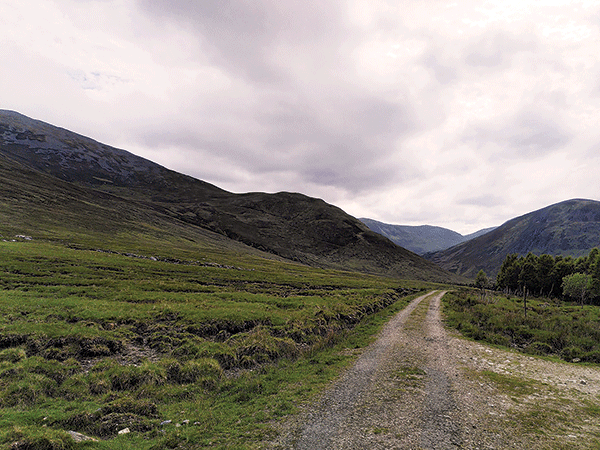I was born and raised on my family’s farm, Inchindown, in the Highlands. For practically all my life, I’ve never imagined ending up anywhere else. Even before I knew I wanted to farm, I knew this was where I wanted to spend my life.
As a model, the small, family farm is always something I’ve seen as an ideal – integral to any vision of a more just and ecological world. But around the time of the Black Lives Matter protests last year, I was stopped in my tracks when I read the statement “the family farm is a colonial concept”.
While jarring at first, it led me down a path of investigation into traditional Gaelic relationships with the land going as far back as before the Highland Clearances, and the legacy of the slave trade on rural landscapes.
I discovered that the family farm as a concept didn’t exist here until 300 years ago, and that patterns of land ownership in the Highlands and Islands have been deeply interwoven with colonial processes all over the world. Once you look closely, it’s hard to ignore how that still shapes farming today, and can help us understand some of the real challenges we are now facing – from the climate and biodiversity crises to the challenges of farm succession.
In Scotland, we have the highest concentrations of land ownership in the western world – fewer than 500 people own half the land. Much of the rest is made up of small and medium family farms. But change is afoot: the average age of farmers in the UK is now over 59, and combined with significant change in policy and subsidies after leaving the EU, it’s highly likely the next decade will see a lot of farms come onto the open market. There’s an opportunity for farms to change hands in a way we’ve not seen for decades, but I’m not convinced there are models in place to allow new entrant farmers onto the land who are committed to growing in an agroecological way.

There’s going to be very few people who can afford to bid on land parcels of hundreds of acres or more. If barriers to entry get harder, we could be moving towards bigger, more industrialised farms and carbon capture landscapes, with fewer people working on the land and an even greater concentration of land ownership.
But there are pockets of change happening. The Land Reform acts passed by the government allows communities the right to own and buy land. Off the west coast of Scotland, for example, is the island of Eigg which has been collectively owned and managed by residents through the Isle of Eigg Heritage Trust since the community buyout of 1997. I visited this island often with my father, and it was here that I started to imagine there might be different ways to relate to land and to land ownership.
Perhaps we can also take inspiration from traditional Gaelic practices such as crofting, where townships work together to grow food and graze animals on shared commons. I don’t have all the answers, but I’m excited about the possibilities for a future beyond the small family farm – a future that could serve everyone better, including farmers. And that’s what I hope to shed light on in Landed.
Landed is a four-part podcast series and personal exploration of land ownership and colonial legacy, told by a Scottish farmer’s son as he returns home to his family farm. Listen to Landed by Farmerama Radio on all major podcasting platforms.
This article was originally published in the Wicked Leeks summer 2021 issue. You can read the full magazine for free on Issuu here.













0 Comments